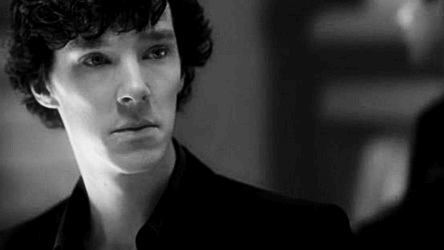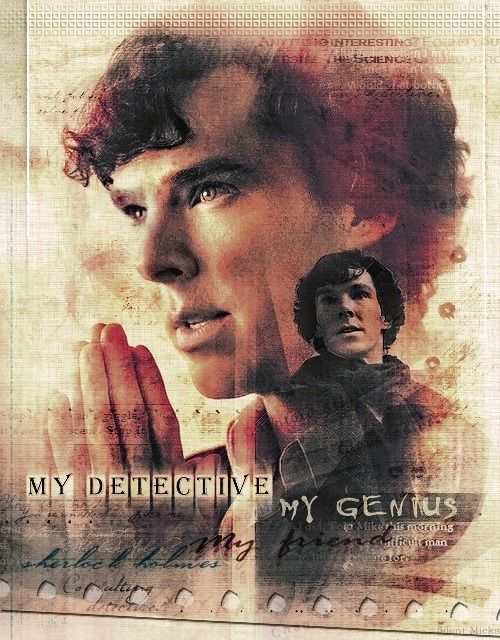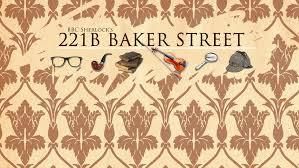
BBC Sherlock Fan Forum - Serving Sherlockians since February 2012.
- tehanu
- Not A Hero
 Offline
Offline - Registered: January 30, 2015
- Posts: 55
the name of the opium den
Did anybody catch it? Chinese native speakers especially please? I just noticed that the third character seemed to be 内, and the first, something 馬-like (the 鴉 of 鴉片 looks like it would be logical, but it was too fast for me and again, I can't pause the film).
- tehanu
- Not A Hero
 Offline
Offline - Registered: January 30, 2015
- Posts: 55
Re: the name of the opium den
Swanpride wrote:
Not a Chinese speaker but I read somewhere that the Opium den is call Foot Club.
Oh that would be great, Ricoletti of the foot club. No idea, off-hand, how to say "foot club" that would vaguely look as if it started with 馬 and went on to 内, but that would be great. I will have one more chance to see it on TV (and then months before the DVD becomes available where I live), but I'm afraid I will just miss it again.
- •
- This Is The Phantom Lady
- Threatened Knighthood
 Offline
Offline 
- From: Home of Hamlet (Denmark)
- Registered: February 6, 2014
- Posts: 10,183
Re: the name of the opium den
Does this help? 
~~~~~~~~~~~~~~
"Don't talk out loud, you lower the IQ of the whole street!"

"Oh Watson. Nothing made me... I made me"
"Luuuuurve Ginger Nuts"
Tumblr[/url] I [url=]AO3
#IbelieveInSeries5
- tehanu
- Not A Hero
 Offline
Offline - Registered: January 30, 2015
- Posts: 55
Re: the name of the opium den
马蹄内翻足. What?
Edit: Ah. a literal clubfoot. (horse-hoof)(inside-turned)(foot). No. Please no.
But a more important edit: thank you so much.
Last edited by tehanu (January 12, 2016 2:53 pm)
- •
- Liberty
- Moderator
 Offline
Offline 
- Registered: June 29, 2014
- Posts: 5,992
Re: the name of the opium den
Ricoletti of the club foot and his abominable wife - of course! How clever! I love these little details!
- Lilythiell
- High Functioning Sociopath
 Offline
Offline 
- From: France
- Registered: May 11, 2014
- Posts: 2,371
Re: the name of the opium den
Huh. Anyone else thinking about the tattoos in TBB?
-------------------------------------------------------------------------
I'd be lost without my blogger.
"It’s not a ‘gang’ show, it’s the Sherlock and John show. It’s about developing their characters and their relationship, and the characters drawn into their orbit.” Steven Moffat

- tehanu
- Not A Hero
 Offline
Offline - Registered: January 30, 2015
- Posts: 55
Re: the name of the opium den
Lilythiell wrote:
Huh. Anyone else thinking about the tattoos in TBB?
![]() Foot club.
Foot club.
I would still be grateful if a native speaker looked at the sign at some point, if only because the ma is simplified. Is that one of those traditional pre-1949 simplifications?
- •
- TheOtherOne
- Not A Hero
 Offline
Offline - Registered: January 7, 2016
- Posts: 47
Re: the name of the opium den
This particular topic had been widely discussed across Chinese fan forums, Weibo, douban etc.
马蹄内翻足 is the Chinese name of the medical condition/ congenital deformity known as "club foot". This was of course intended as a nod to the original Doyle reference of "Ricoletti of the club foot and his abominable wife" in the books. However, majority of Chinese viewers were actually unable to understand the reference even though the Chinese characters were shown in plain sight because:
1. You need to have heard about this medical condition, which in itself is not all that commonly known.
2. You need to know its equivalent name in English.
3. You need to have read the original ACD books *in English* to stand the chance of making the association between the two, because this reference simply doesn't exist in the Chinese versions.
IMO point 3 is probably the most crucial missing element... because even after people had searched for the term online, they still couldn't understand why anyone would put the name of a medical condition on the door sign to what clearly looks like a nightclub. So actually most viewers just think BBC botched the Chinese translation and had intended to call it some sort of "foot massage parlour"... which of course cannot be true because it's really an opium den at Limehouse (itself a nod to canon). This was rather unfortunate.
The first character is also historically inaccurate... because 马 is printed on the sign in simplified Chinese, but in 1894 this would have been written in traditional Chinese as 馬 instead. Simplified Chinese was not widely promoted and adopted for use until the 1950s.
- tehanu
- Not A Hero
 Offline
Offline - Registered: January 30, 2015
- Posts: 55
Re: the name of the opium den
Haha, yes I'm charitably blaming that on Sherlock's shaky knowledge of Chinese, as demonstrated already in TBB. It's in his mind after all. Can't go to a Chinese-language forum though, my Chinese is not good enough, and anyway I would need a Taiwanese forum as I only read traditional anyway, I wouldn't survive. Thank you for a confirmation that the name was stupid, I was afraid there was another level of humour there that I wouldn't be able to figure out.
But, TheOtherOne, are you sure about the 馬 and 马? My point was that traditional pre-1949 simplifications do exist after all, from grass or whatever. I've just never seen a list. Are you more or less sure that this isn't one of them? It looks good, there is loss of strokes but the general shape of the character is retained, as in 車 => 车, which I think a teacher told me was "traditional" in the sense of "cursive". That would still be fishy on a shop sign, but less worrying.
TheOtherOne wrote:
...
The first character is also historically inaccurate... because 马 is printed on the sign in simplified Chinese, but in 1894 this would have been written in traditional Chinese as 馬 instead. Simplified Chinese was not widely promoted and adopted for use until the 1950s.
- •
- Harriet
- Most Human Human Being
 Offline
Offline 
- From: 110A Piccadilly
- Registered: August 24, 2012
- Posts: 9,887
Re: the name of the opium den
Just want to drop kudos for this research and another evidence that the universe isn't lazy at all! Thanks! ![]()
Eventually everyone will support Johnlock. Independent OSAJ Affiliate
... but there may be some new players now. It’s okay. The East Wind takes us all in the end.
- TheOtherOne
- Not A Hero
 Offline
Offline - Registered: January 7, 2016
- Posts: 47
Re: the name of the opium den
@tehanu - yes simplification of characters did exist pre-1950s, especially with Chinese calligraphy in cursive or semi-cursive script. However, the cursive form of 馬 doesn't really look like the simplified character in question.
You can see some examples here:
Also, in the context of the sign, this would only make sense if the *whole sign was in cursive script*, but clearly it's printed in standard script with regular typeface.
Hope that makes sense!
- tehanu
- Not A Hero
 Offline
Offline - Registered: January 30, 2015
- Posts: 55
Re: the name of the opium den
Thanks again. They are absolutely horrible then.
TheOtherOne wrote:
@tehanu - yes simplification of characters did exist pre-1950s, especially with Chinese calligraphy in cursive or semi-cursive script. However, the cursive form of 馬 doesn't really look like the simplified character in question.
You can see some examples here:
Also, in the context of the sign, this would only make sense if the *whole sign was in cursive script*, but clearly it's printed in standard script with regular typeface.
Hope that makes sense!
- •
- TheOtherOne
- Not A Hero
 Offline
Offline - Registered: January 7, 2016
- Posts: 47
Re: the name of the opium den
Oh no I don't think they were horrible really... it's just an honest mistake. I mean yes it's not perfect... and checking with a native speaker before hand would probably have avoided this... but IMO it's the thought that counts (i.e. The fact that Gatiss went to the effort of adding in this particular detail should be appreciated in itself).
I certainly wouldn't want this small mishap to dissuade the producers from adding easter eggs in future! That would be a real shame for us fans.
- SusiGo
- The game is never over (moderator)
 Offline
Offline 
- From: Germany
- Registered: June 5, 2012
- Posts: 22,969
Re: the name of the opium den
Wow, so much research here. Bravo!
You know what is strange - I just got my blu-ray and watched the extras. There was a special with the location manager who said that Ricoletti was coming out of a bordello, not an opium den. I was a bit astonished because he would know the script when scouting locations, wouldn't he? But a Chinese establishment in Limehouse in those times seems to be quite indicative of an opium den, I suppose.
------------------------------
"To fake the death of one sibling may be regarded as a misfortune; to fake the death of both looks like carelessness." Oscar Wilde about Mycroft Holmes
"It is what it is says love." (Erich Fried)
“Enjoy the journey of life and not just the endgame. I’m also a great believer in treating others as you would like to be treated.” (Benedict Cumberbatch)

- besleybean
- Threatened Knighthood
 Offline
Offline 
- From: Carnoustie, Angus, Scotland.
- Registered: October 4, 2012
- Posts: 21,380
Re: the name of the opium den
Yes I remember the term 'bordello' being used...why the error?!
---------------------------------------------------------------------------------------------------------------------------------------------------------------
- This Is The Phantom Lady
- Threatened Knighthood
 Offline
Offline 
- From: Home of Hamlet (Denmark)
- Registered: February 6, 2014
- Posts: 10,183
Re: the name of the opium den
I have said this before, I love how deep this fandom goes in forms of research!
This reminds me a bit of The Knick... there's a scene where the doctor sends the nurse to an opium den when he's running out of the morphine he's addicted to... as I remember it, the young nurse has to perform some ehm... form of uh... foot massage thing... for the owner of the establishment to get the drugs for the doctor.
I can't get that out of my head following this discussion
Last edited by This Is The Phantom Lady (January 13, 2016 9:40 pm)
~~~~~~~~~~~~~~
"Don't talk out loud, you lower the IQ of the whole street!"

"Oh Watson. Nothing made me... I made me"
"Luuuuurve Ginger Nuts"
Tumblr[/url] I [url=]AO3
#IbelieveInSeries5
- TheOtherOne
- Not A Hero
 Offline
Offline - Registered: January 7, 2016
- Posts: 47
Re: the name of the opium den
Yes, especially when there is a literal reference to visiting "an opium den in the farthest east of the City" in "The Man with the Twisted Lip".
Probably some sensitivity around topic of opium in a British film that's adored by so many Chinese viewers.
SusiGo wrote:
Wow, so much research here. Bravo!
You know what is strange - I just got my blu-ray and watched the extras. There was a special with the location manager who said that Ricoletti was coming out of a bordello, not an opium den. I was a bit astonished because he would know the script when scouting locations, wouldn't he? But a Chinese establishment in Limehouse in those times seems to be quite indicative of an opium den, I suppose.

 1 of 1
1 of 1